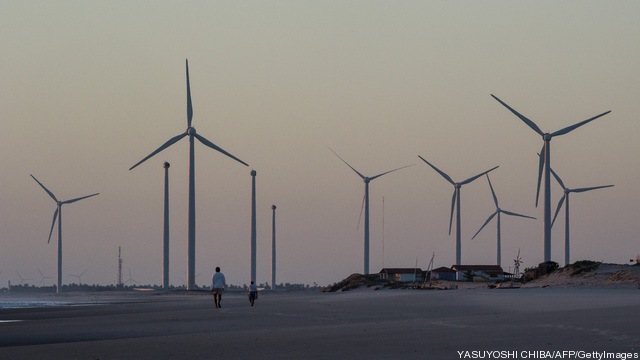With the 2014 FIFA World Cup less than a year away, Brazil is rapidly preparing its power grid to support the millions of visitors that will travel to the country for the event. Many of the transmission and distribution infrastructure challenges that Brazil is currently addressing were similar to the issues South Africa confronted during… Keep reading →
Brazil
Sign up and get Breaking Energy news in your inbox.
We will never sell or share your information without your consent. See our privacy policy.Brazilian billionaire Eike Batista faces regulatory scrutiny for potential illegal activity at petroleum company OGX. From luncheons with Madonna to reportedly selling his $19 million yacht for scrap, Batista’s highly-publicized fall from grace continues. [New York Times] Chinese national oil champion CNPC just bought into Novatek’s Yamal LNG venture, giving French Total and CNPC 20%… Keep reading →
The trouble with economic booms is that “crazy” is largely a matter of timing. For anyone who was paying attention in the 1980s, the idea that Brazil, with its runaway inflation problems, would emerge as a powerhouse driver of global economic growth while developed economies struggled in the mid to late 2000s would have seemed… Keep reading →
A recent Wall Street Journal article discussed major oil company reserve holdings and how investors should evaluate a company’s reserve quality, quantity and global geographic distribution. It is an interesting story about a very important topic, but a lack of clarity with regard to some of the methodology and terminology leaves many questions unanswered. However,… Keep reading →

In the last 20 years, energy innovation has become a global process in terms of education, finance, technology, and markets. At the 2013 MIT Energy Conference a panel of experts discussed pros and cons of innovative energy solutions in emerging markets.
Emerging markets provide attractive opportunities for innovative energy systems. The competitive advantage of renewable over traditional energy sources is greater than in developed countries. However, socio-economic, cultural, and policy issues might interfere with the innovation process in these countries. Keep reading →

Brazil may not be growing the way it once was, but there are still opportunities to be had in Latin America’s largest economy.
After a commodities-driven boom during the past decade, Brazil’s economy slowed substantially last year as global demand for raw materials waned. Keep reading →

New markets are the Holy Grail for businesses, but success in accessing and serving new markets is far from easy. The difficulties are multiplied when those new markets are in parts of the world where language, culture and regulation are completely different.
Brazil’s energy market is undergoing a transformation that opens up new opportunities for many businesses that might have steered clear of the tightly regulated sector in the past, despite the obvious temptations offered by the country’s broader economic growth trajectory. Keep reading →

Rio de Janeiro has seen its share of energy sector action this year, and the rollout of new data underlining the appeal of both renewable energy itself as well as the products made with renewable energy is burnishing the city’s reputation as a leading destination for companies, investors and thought leaders from across the region and the world.
Developing countries are driving growth in renewable energy production and usage as developed nations back away from earlier government commitments to financing mechanisms. Brazil has a swiftly growing wind energy sector that underlines the commitment at both the government and corporate levels to expanding renewable energy use even as the oil and gas sector drive export market oriented investment in new fossil fuel production. Keep reading →
Brazilian government intends to boost installed #windpower generation capacity to 11.5 GW by 2020 #EnergyTransparency2012
By Peter GardettBrazilian government intends to boost installed #windpower generation capacity to 11.5 GW by 2020 #EnergyTransparency2012 Vestas
 Blessed with abundant surface water resources and a considerable amount of associated hydroelectric power, Brazil has lots of renewable energy, and a lot of room to generate additional power from renewable sources like wind and solar.
Blessed with abundant surface water resources and a considerable amount of associated hydroelectric power, Brazil has lots of renewable energy, and a lot of room to generate additional power from renewable sources like wind and solar.
Brazil is the world’s second largest hydro power consumer behind China, but a sharp contrast between wet and dry seasons – along with occasional droughts – has driven the country to import LNG in recent years to supplement its energy security. Keep reading →




